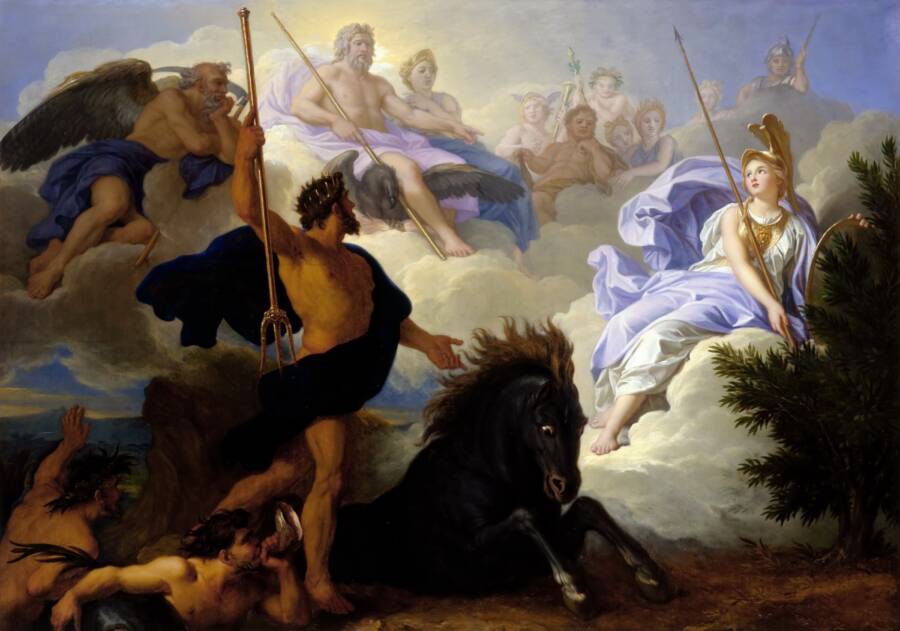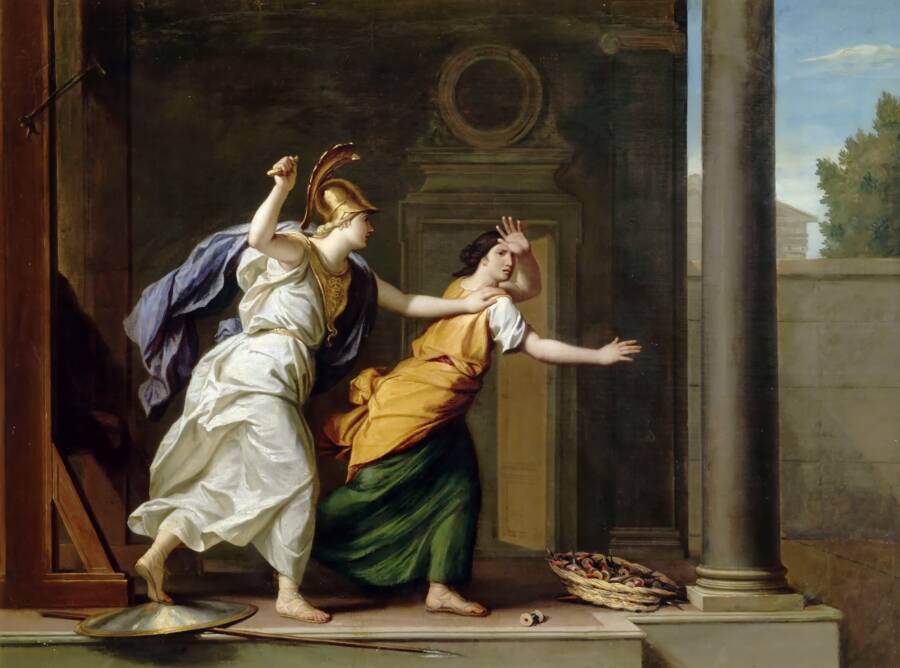Ancient Greek Gods And Goddesses: Athena, Protector Of Civilized Life

Public DomainPallas Athenas by Rembrandt, known to the Romans as Minerva.
The goddess Athena stood as a beacon of wisdom, courage, and strategy. Born from the head of Zeus, king of the 12 Olympians, fully grown and clad in armor, when she emerged she let out a triumphant battle cry that echoed through the heavens and earth. She was said to be a fierce and ruthless warrior, inspiring and fighting alongside the Greek heroes.
But Athena was not just a warrior goddess. She was also the patron of civilization, embodying the virtues of justice, skill, and intelligence. Her domain was the city, where she nurtured the arts of war and peace.
The most famous myth regarding Athena involves her contest with Poseidon for the patronage of the Greek capital. Both of these Greek gods vied to gift the city the most valuable boon. Poseidon struck the earth with his trident, from which a spring sprang forth, but it gave saltwater, less useful for the city’s denizens. Athena, on the other hand, offered them the olive tree, a symbol of peace and prosperity.
The citizens, seeing the greater value in Athena’s gift, chose her as their patron, bestowing her name upon their city: Athens.

Public DomainThe Dispute of Minerva and Neptune by René-Antoine Houasse.
Athena’s influence extended beyond just war and politics, however. She was also the Greek goddess of wisdom, arts, and crafts. She was credited with inventing the bridle, which permitted man to tame horses, and with weaving the first tapestry.
The myth of Arachne perhaps best exemplifies Athena’s domain over crafts as well as her punitive power. Arachne, a talented but arrogant weaver, dared to challenge Athena to a weaving contest. Though Arachne’s skill was great, her hubris, seen as a challenge to Athena’s supremacy, led to her downfall. As punishment, Athena transformed Arachne into a spider, condemning her to weave endlessly.

Public DomainMinerva and Arachne by René-Antoine Houasse, 1706.
In art, Athena was often depicted majestically and with great reverence, even relative to the other 12 Olympians. She was portrayed as sharp, postured, regal, and commanding, often wielding her legendary shield, the aegis, which is mentioned several times in Homer’s Iliad:
“It produced a sound as from myriad roaring dragons and was borne by Athena in battle … and among them went bright-eyed Athene, holding the precious aegis which is ageless and immortal: a hundred tassels of pure gold hang fluttering from it, tight-woven each of them, and each the worth of a hundred oxen.”
As the patron of the Greek capital, Athena’s temples were central to civic life, with the Parthenon on the Acropolis of Athens being the most famous. Here, her statue not only symbolized divine protection but also served as a reminder of the virtues that built and sustained the city, standing as a testament to Athenian democracy and culture.
There were likewise several rituals and festivals held in Athena’s honor. The most significant festival, the Panathenaea, was celebrated annually in Athens and featured athletic and musical competitions, sacrifices, and a grand procession to the Acropolis, where a new robe was presented to Athena’s statue.
Another important festival was the Plynteria, or “Feast of the Bath,” observed yearly on the 22nd of the month of Thargelion. During this period, the priestesses of Athena performed a cleansing ritual within the Erechtheion, where they undressed Athena’s statue, washed her clothing, and purified her body.





